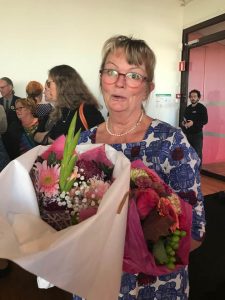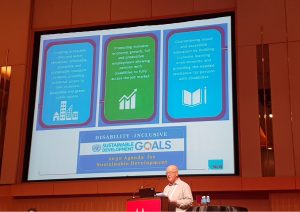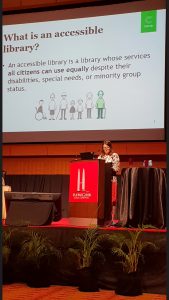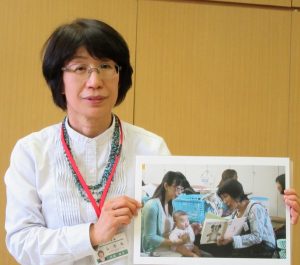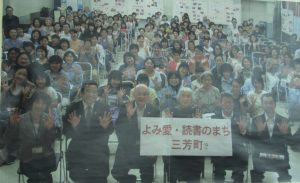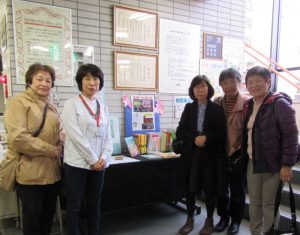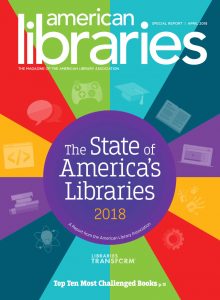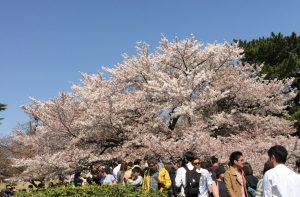IFLA WLIC 2018
Kuala Lumpur
Synopsis prepared by Corinne Hill, Public Libraries Section member.
Sponsored by Metropolitan Libraries and the Public Libraries Section, this program had the unenviable scheduling position next to IFLA’s Global Vision session. Nevertheless, Sanctuaries still drew a respectable crowd.
The session opened quite strongly with Derr Leonee Ariel’s “Public Libraries are safe and neutral spaces…when people aren’t in them!“From Malvern Library in Melbourne, Australia, Ms. Ariel delivered a compelling presentation framed around the use of language, and why language matters. She is a lover of language, and evidence of this can be seen throughout her entire presentation. She spoke of how “the past informs practice and expectations today.” My favorite slide was when she compared “Safe and Sanctuary,” vs “Inclusive and Refuge.”
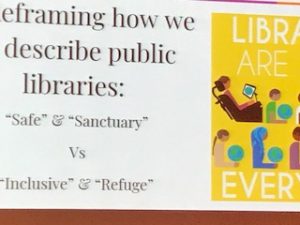
What I took away from this was that we build trust with our communities over time. While we have standards of behavior when working in public space there is the reality of what it is truly like to work in a public space—and it’s not a safe space. We strive to create inclusive experiences in an unpredictable world often with vulnerable populations not captured in census.
Ms. Ariel see’s our future as social justice in action—while we are not a political institution, our current political environment has made us one.
She is someone to watch as she has her pulse on our current predicaments. I encourage you to read her presentation in its entirety:
http://library.ifla.org/2272/1/114-derr-en.pdf
Walsh Benjamin followed with his “Public library and private space: Homeless queer youth navigating information access and identity in Toronto.” Mr. Benjamin examines the public library as an important space for homeless lesbian, gay, bisexual, transgendered, transsexual, two-spirit, and/or queer youth. As an academic librarian, he’s report stands at the intersection of public library services and library research—something not well represented in the literature and something for which he should receive accolades.
The first challenge to delivering services to this population is finding them –essentially, delivering services for those you cannot see. Homeless queer youth often hide their identity and such deception often leads to chronic and/or critical information poverty. Essentially, queer youth are seeking privacy in an Urban Hybrid Space as they cannot embrace their queerness in a public space.
The entire presentation is available here:
http://library.ifla.org/2144/1/114-walsh-en.pdf
The discussion shifted to building design with Traci Engel Lesniski, Minneapolis, USA, “Welcome to All: Design’s Role in Creating an Inclusive, Safe, and Beloved Community Destination.” Ms. Engel spoke of the community’s resistance to the Central Library’s redesign identifying it as a “fancy homeless shelter and an irrelevant space for the rest of the population.” Ms. Lesniski’s architectural firm, MSR, took this “homeless issue” as a design challenge recognizing the actual and perceived safetyissues. They incorporated onsite offices for social service providers, study rooms for consultations, computer table design that allowed for privacy and space for belongings of the homeless, and they created a 2nd controlled entry to the children’s suite. Essentially, MSR turned the library from a fear-based program to a home-based program, and opened in 2013 to community acclaim. The entire presentation is available here:
http://library.ifla.org/2218/1/114-lesneski-en.pdf
Libraries Without Borders, Paris, France presented “Libraries as vectors of integration for immigrants and refugees: access to information and education in the Ideas Box in France.” With 68.5 million displaced individuals worldwide, libraries play an important role in integrating immigrants and refugees into host communities. The “Ideas Box” is a flexible, modular, mobile library that makes for an excellent outreach tool. Outreach to displaced individuals helps them to regain a sense of normalcy after trauma, and demonstrates that the library is a place to build hope again. Presentation not available.
Continuing the discussion of the public library as a safe space, “Public library as a safe place: principles and experiences of Brazilian Park Libraries in Rio de Janeiro,” looks at a public library as a space and place rather than as a service. Park Libraries in Rio de Janeiro are located in very poor and violent regions of the city. The purpose is to explore the social capital theory as it applies to public libraries. The entire presentation is available here:
http://library.ifla.org/2143/1/114-silva-en.pdf
The final presentation, “Library for the homeless: A case study of a Shelter House and a School for Homeless in Indonesia and Malaysia,” examined the impact of library materials and services at homeless shelters. The study found that sustainability is an issue both for materials and staff training. The entire presentation is available here:
http://library.ifla.org/2140/1/114-lastiwi-en.pdf
